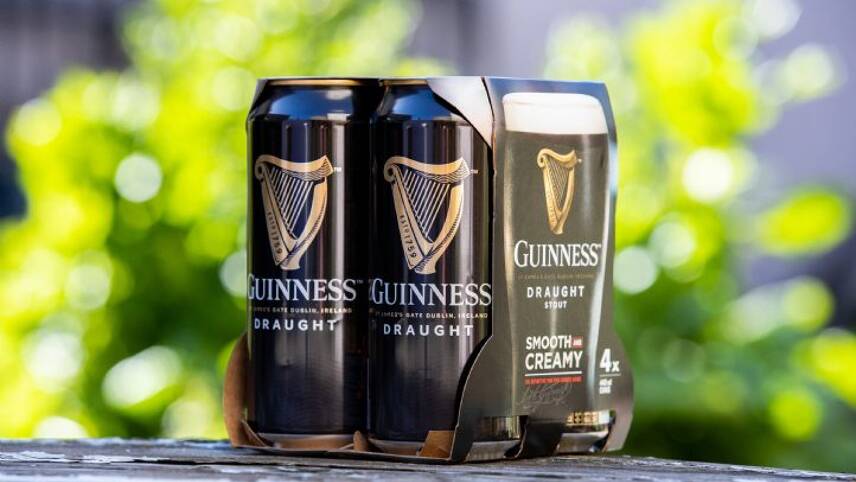Register for free and continue reading
Join our growing army of changemakers and get unlimited access to our premium content

Diageo will source 100% of the pulp used to make the new packaging from suppliers certified as sustainable
The plastic shrink wrap currently used to house the products, and the flexible plastic six-pack rings used to keep the cans together, will be replaced by cardboard sleeves and boxes, in a move which will reduce Diageo’s plastic waste footprint by 400 tonnes per year. The firm claims that this weight is equivalent to the amount of plastics used to make 40 million 500ml drinks bottles.
The new packaging will be rolled out across Ireland from August, with the UK and the rest of Diageo’s global markets where the beer lines are sold set to follow suit in 2020. Diageo has pledged to purchase all of the pulp used to make the cardboard packaging, which is classed as widely recyclable and fully biodegradable, from sustainable sources.
“Great packaging is essential for our products, as consumers expect our packs to look beautiful while being functional and sustainable,” Diageo’s chief sustainability officer and global supply and procurement president David Cutter said.
“I am proud to announce this investment, through which we have been able to combine all three. We have been working tirelessly to make our packaging more environmentally friendly and I’m thrilled with this outcome for Guinness and our other global beer brands.”
The announcement comes after rival beverage company Carlsberg replaced the traditional plastic packaging wrapped around multi-packs with a recyclable glue that sticks the cans together.
Plastics pledges
The move from Diageo builds on its global plastics strategy, which includes a headline commitment of ensuring that all plastics it uses are widely recyclable, reusable or compostable by 2025.
Diageo’s strategy additionally targets the inclusion of 40% average recycled content in plastic bottles by 2025, rising to 100% by 2030.
At present, just 5% of the firm’s packaging use by weight is accounted for by plastics, with the rest largely accounted for by recyclable aluminium cans and bottle caps, glass bottles and cardboard.
Nonetheless, it has continually shown leadership in the plastics field through a string of investments into circular economy systems and new alternative materials, complemented by a host of collaborations with other industry stakeholders. Diageo is a member of the Ellen MacArthur Foundation’s New Plastics Economy Commitment, for example, which requires it to work with more than 150 other businesses and more than 100 non-corporate stakeholders – including investors and national governments – to make the circular economy the “new normal” for plastic packaging.
More recently, the company’s African arm teamed up with Unilever, Nestle and The Coca-Cola Company to co-found the Africa Plastics Recycling Alliance. The scheme will see the founding companies collaboratively develop and implement programmes which will help communities across Africa’s Sub-Saharan region turn their localised plastic pollution problems into an environmental, social and economic opportunity.
Sarah George


Please login or Register to leave a comment.